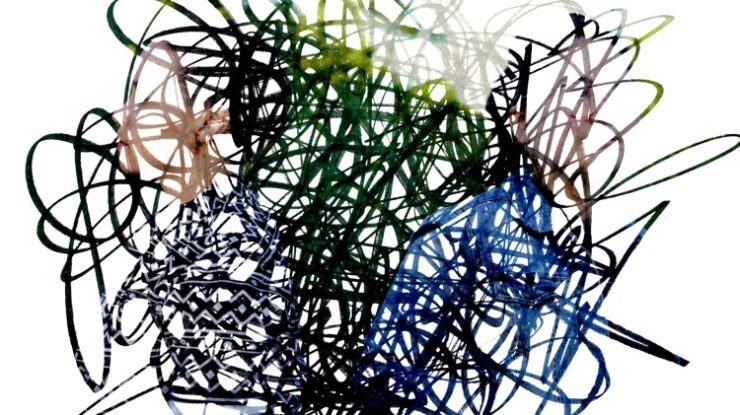Festival’s virtual lineup highlighted a variety of cinematic voices, shown through six curated series
As the COVID-19 pandemic drags on, entertainers continue to find innovative ways to showcase their art. With the adoption of alternative modes of presentation, such as distanced performances and digital streaming, artists have had to rely on their creativity to find original ways to present their work.
Such is the case for the filmmakers and coordinators behind the Mirror Mountain Film Festival. After being cancelled in 2020 due to the pandemic’s first wave, the up-and-coming festival was back in 2021 to “promote unique and original creative voices from the Ottawa-Gatineau region and from around the world.”
Between July 24-25, the festival’s virtual lineup highlighted a variety of cinematic voices, shown through six curated series.
“New Visions” is a series presenting innovative and experimental films, like French filmmaker Yann Chapotel’s striking visual storytelling in Inside. In the short, Chapotel combines clips of balconies and windows neighbouring his home, illustrating the beauty of daily, mundane rituals.
“Moving Images” features a set of provocative dramas, music, and dance films. In this series, one can find intimate narratives like Alice Il Shin’s Signal Fire, which depicts the generational divide between a young man and his traditional Chinese grandfather-in-law as they tend to the grave of a loved one.
Likewise, “True Stories” compiles a range of short documentaries capturing intriguing lives, “Lines Drawn” presents an array of animated short films, “Strange Hours” offers a range of films exploring eccentric themes, and “Local Heroes” spotlights stories and creatives from the Ottawa-Gatineau region.
In addition to these collections of short films, Mirror Mountain also premiered several stand-alone pieces. At the festival, director Ibrahim Awara premiered his feature film Visitor, a mysterious thriller that explores the boundaries between truth and fiction. Lisa Birke’s 360° video space, The Land of Milk and Honey, also premiered regionally, providing viewers with an immersive experience that “grapples with fertility, loss and the … complexities of the human body and mind.”
One of the most prominent contributors to this year’s festival was Ottawa-based filmmaker Hingman Leung. On July 24, Leung and local singer-songwriter Kimberly Sunstrum combined their skills in music and animation to present a live audio-visual performance addressing themes of self-discovery and identity.
“Returning to the stage in this way, with an amazing musician who I adore, is such a privilege to me,” wrote Leung to the Fulcrum. She added that taking her cinematography and visual media onto the stage is something she has wanted to do for a long time because of her experience as a classical musician.
As well, Mirror Mountain highlighted Curbside Pickup, a short film written and directed by Leung, in its “Local Heroes” collection. The film, which is nominated for the festival’s Best Screenplay award, explores the familiar complexity of social interaction and dating during the COVID-19 pandemic, while maintaining a distinct local flair.
“I hope viewers can catch all the little Ottawa things in the film,” Leung remarked. “[It] feels amazing to have been selected … in an international festival that’s hosted locally.”
The idea for the film arose from a conversation with her writing club.
“We were throwing around ideas and the one thing that really interested all of us was pandemic art. What kind of stories will we be telling about the pandemic when it is over?”
The subject matter and production process created some interesting boundaries for the filmmaker’s first screenplay, which was met with success at Mirror Mountain and beyond, being selected for the CBC’s Short Film Faceoff and other Canadian festivals like Inside Out.
Just as the COVID-19 pandemic has impacted filmmakers’ artistic processes, it has also impacted how the Mirror Mountain Film Festival operates. In an email to the Fulcrum, Board of Directors member Christopher Rohde revealed that, while postponing the 2020 season was disappointing, it also allowed event organizers to transform the festival into a non-profit organization.
Of course, transitioning from an in-person to a virtual festival has not been easy, Rohde contended, especially when determining how to stage the festival’s signature live music and film performance, but he sees a positive: hosting a virtual festival allows the programming to be “more accessible than it’s ever been before.”
Now, Rohde says, “It feels great to have the festival back up and running, and the response from artists and filmmakers … has given us a sign that others are just as glad to have a platform for their art to be shown, discussed and appreciated.”
Despite all the changes and upheaval of the previous year, Rohde and his fellow organizers found ways to maintain Mirror Mountain’s fun, dynamic, inclusive and offbeat atmosphere, reflecting the passion and versatility of the artists behind it.





